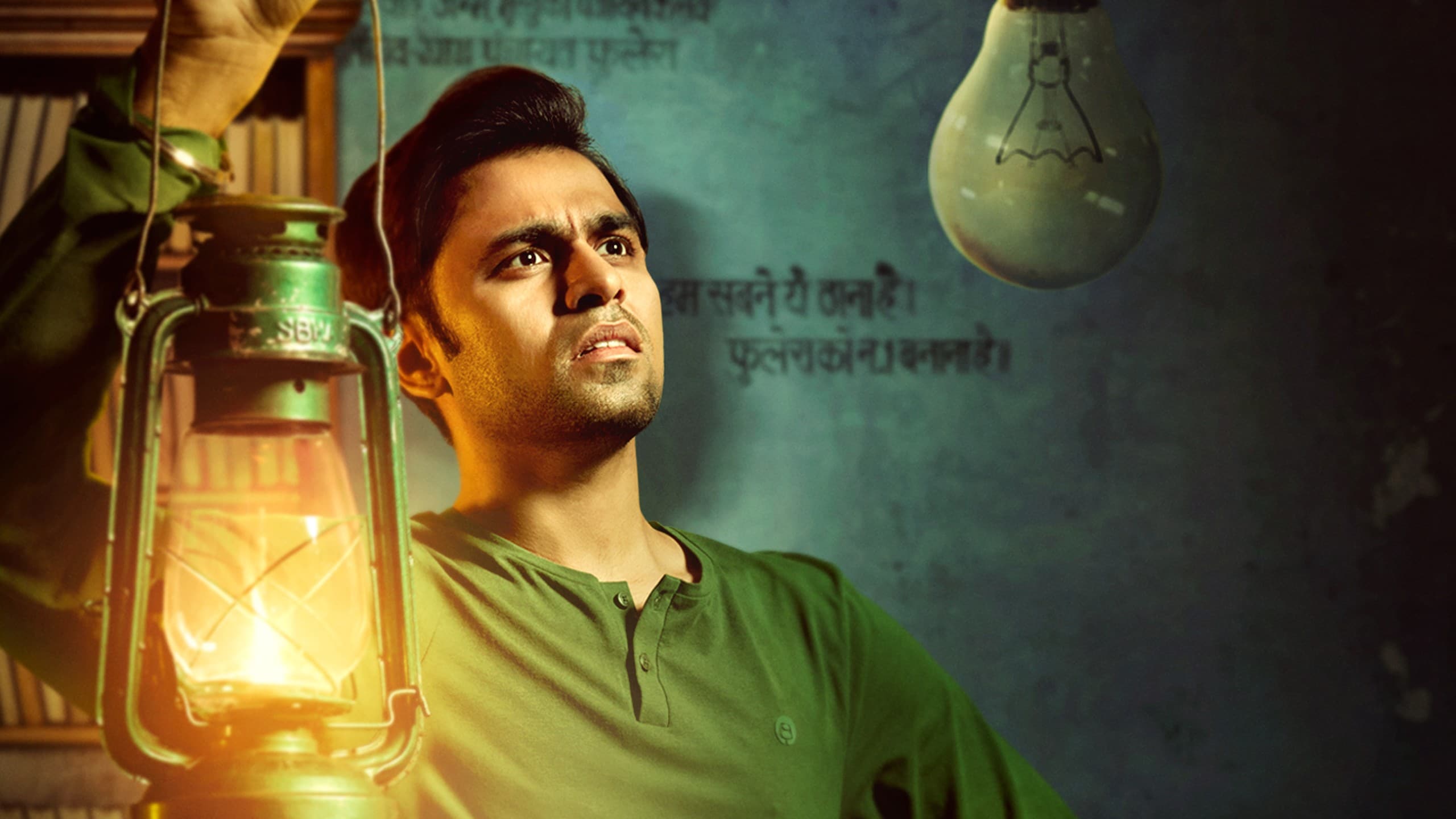
Screenwriter Sudip Sharma — known for OTT successes Kohraa and Paatal Lok — shared a premonition about the OTT medium in a recent interview with film journalist Suchin Mehrotra: "It's the mid-budget show that is going to die." He added: "The big, shiny shows will stay… if you put money behind a star and if he fails, you don't lose your job because you have the insurance… you have an excuse." This is a far cry from the dazzling promise of the streaming wave that hit in 2015.
The streaming world has had quite the journey since the mid-2010s. By 2018, it had turned into a legitimate medium of entertainment in India — shows like Sacred Games, Inside Edge, Delhi Crime, and Mirzapur displayed the potential of Hindi-language storytelling when not bound by censorship rules that applied to theatrical films. Once the pandemic hit in 2020, OTT emerged as the go-to place for entertainment — promising new writers, directors, and storytellers opportunities. Come 2024, the scenario is a far cry from this rosy picture.
"It was an unsaid promise," said DM*, who has written and directed shows for several popular OTT platforms, including Amazon Mini TV and Voot. DM* experimented with different creative professions to move closer to his ultimate goal of making films. However, eight years and multiple projects later, he arrived at a harsh conclusion: "With time, you learn that you're getting crumbs after the full plate has been eaten [from]."
What has been the driving force behind this change? It is the complicated nexus between the film industry and the OTT audience.

Contrary to the unsaid promise, new directors have not gotten their big break on OTT.
Lack Of Definitive Monetisation Plans
The advent of OTT in India saw Netflix, Amazon Prime, and Hotstar buying films and commissioning series with the goal of expanding their subscriber base. With time, some of these decisions turned out to be counterproductive, and even damaging.
"OTTs have shot themselves in the foot by spending insane amounts of money on s**t films and shows," said Navjot Gulati, the director of Ginni Weds Sunny, which released on Netflix in 2020. "Now, when they go back and see the losses in their books, a lot of them will shut shop."
Netflix unveiled new original titles in February, many of which were star-studded projects, including Sanjay Leela Bhansali's Heeramandi, Maharaj starring Jaideep Ahlawat, and IC 814: The Kandahar Hijack, starring Vijay Verma, the trailer of which released recently. However, the number of original titles stood at 24, which is drastically lower than 40 commissioned in 2021.
To curb spending, these platforms are resorting to commissioning fewer shows and films, and diverting their money where they believe they can get the best returns: towards established filmmakers.
"You have filmmakers like Nikhil Advani, Hansal Mehta, and Suparn Verma doing more than five projects because they've delivered," Gulati added. "They [OTT platforms] believe that if you've given a success, you have the secret sauce."

Netflix unveiled 24 new original titles in 2024, which included Sanjay Leela Bhansali's highly anticipated 'Heeramandi'.
No Time For Quality Storytelling
Unfortunately, following the status quo isn't working well for OTT platforms either. Heeramandi, which received a lukewarm response despite the buzz around it, reportedly cost Rs 200 crore — which could accommodate at least 10 mid-budget shows.
"With so much money going into one show, of course, Netflix would have to cancel other projects," said Vipul Kamboj, an events manager-turned-producer. "Celebrities and directors are doing on OTT exactly what they were doing on the big screen, without understanding that it will not work on the small screen," Kamboj added.
The numbers concur. In Ormax Media's mid-year review of streaming originals, Heeramandi came second after Panchaayat as the most-watched series with 20.3 million views. Rohit Shetty's Indian Police Force came in third with 19.5 million views. But according to the 'Ormax Power Rating' — which scores shows based on content strength — both shows fall to the 8th and 9th positions respectively. Panchayat, Kota Factory, and Gullak are among the highest ranked.
As things stand, last month, a second season of Heeramandi was announced.
Hindi cinema at large is suffering from a slew of box office failures. Big names like Deepika Padukone, Hrithik Roshan, Tiger Shroff and Siddharth Malhotra are unable to bring people into theatres. Though Kabir Khan's Chandu Champion, starring Kartik Aaryan, and Tushar Hiranandani's Srikanth, starring Rajkummar Rao, received fair critical acclaim, they did not fare brilliantly at the box office. This goes for a majority of releases so far this year, with Stree 2 being an exception.
OTT was a welcome solution to the problem — with more room to experiment, audiences would get a variety of stories to choose from. However, when money making becomes a priority, quality storytelling falls last in the list.
"One thing about OTT that unified our country was that there was aspiration mixed in with relatable content," DM* said. "I have been in rooms where I have pitched stories and have been told that the algorithm doesn't support it… We're an emotional country. Not an algorithm-based country."

Shows such as Panchayat, Kota Factory, and Gullak are more popular among audiences for their content.
While Hindi cinema struggles to find its footing in either medium, the popularity of content in other Indian languages is rising tremendously. In a mid-year review of theatrical releases in 2024, the share of Hindi films is seen to have reduced slightly. What stands out is Malayalam cinema — the top releases have already grossed more than its entire collection in 2023. Fahadh Faasil-starrer Aavesham and Soubin Shahir-starrer Manjummel Boys were on the list.
Ormax Media's Bollywood Image Report reiterates this struggle. The report finds that a whopping 70% of movie-goers find Hindi cinema lacking in originality compared to films from the south. There is a general consensus that films in the south have better stories.
"The reason the web space reached where it did is because people were starting to see themselves in it," DM* said. The success of shows such as Gullak, Panchayat, Paatal Lok, and Mirzapur can be attributed to their slice-of-life treatment of scripts, local dialects, and local issues, making the audience feel close with the 'real' world. However, this led to a templatisation of these formats, which became boring and repetitive. Because regional content relies on these stories alone, it is having its moment under the sun.
It can be safe to say that Hindi cinema is going through an identity crisis, which needs resolution. "Sanjay [Bhansali] is not a laptop or phone-screen director," Kamboj said. "You show me a monumental palace and I'm looking at it on a six-inch phone screen. I will not be able to appreciate it."
The Supply Issue And OTTs' Next Move
The biggest challenge for OTT platforms is retaining subscribers. As of 2024, 547 million people consume OTT content — up from 481 million last year. However, the rate of growth has dropped drastically — from 20% during the pandemic period to 13.8% in 2024. Fewer people are enthusiastic about paying for yet another OTT subscription.
Audiences are hungry for content, but are OTT platforms equipped to cater to them?
"Back in 2015–2016 things were different. OTT was the place of stories that couldn't be told in cinema,” Gulati said. "All the OTTs wanted to experiment and bring in new voices. But today, OTTs don't want to put their mind behind anything that is new. They want to play it safe."
To cater to a wider audience base, OTT platforms are considering different routes: changing the content of the shows and the format. "OTTs want to move away from the violence, gore genres," Kamboj added. "This is probably because they now want to create content that a family can watch."
TV plus is a format the platforms are toying with — where directors for select tentpole shows are expected to create a number of episodes with a quick turnaround time and minimal budget. "I get calls where I'm supposed to do 20 episodes in 50 days," DM* said. "When you want to make people consume constantly, how are you supposed to deliver quality content?"
Regardless, TV plus is emerging as a solid strategy out of them all — taking us back to the cable TV era.
Cracking It As An 'Outsider'
"You follow the trajectory of what you've been hearing as outsiders," DM* said. "But you get to know years into working that all the big players are taking away 80% of the corpus of these OTTs. What you're left with is some money to play around with." What about those who fund their way through their films?
PM*, a writer-director, reached out to private investors to make his first feature film for OTT — a thriller, set in the background of the pandemic. He arrived at a tight budget of Rs 2 crore to make it. Completing his film was only the beginning of the uphill battle. To get to OTT, PM* would have to first release his film in theatres.
"The film was released in around 500 screens across the country, though I never intended to release it theatrically at all. However, I had to do so to meet the criteria set by the OTT platform." PM* had a limited say in the release date, as he would have to compete with Sandeep Reddy Vanga's Animal and Anil Sharma's Gadar 2. He chose, instead, to release his films alongside Barbie and Oppenheimer, both of which reached the billion-dollar mark in revenue.
"Only a fool would opt for a theatrical release with the star cast and subject matter I had," he said. But the rules had to be followed. With modifications to fit a theatrical release, getting clearance from the Central Board of Film Certification, promoting the film and distributing it nationwide, PM* raked up an additional Rs 1.2 crore in bills. "I had investors who believed in my vision, but by the time of the release, they were exhausted," PM* said. He mortgaged his property to meet the expenses.
Positively, the film has received consistent views since its release last year, with good returns. PM* expects to recover his production costs by the end of 2026.
Several directors first create the product and then find a way to sell it to OTT platforms. But success is never guaranteed.

An Ormax Media survey found that 70% theatre-goers believe South Indian films have better stories compared to Bollywood.
What's The Solution?
Despite there being a market for richer stories to thrive, there is resistance to newness. Upcoming directors and producers point to the rot within the top management, and recommend changes from within the system.
"The decision-makers on these platforms are marketing professionals, not filmmakers," PM* said. "They tend to buy films that feature a star who is currently relevant...often, you're unable to cast the actor you truly want because they lack a strong social media presence."
One solution is to have more storytellers in management positions. "OTTs are filled from top to bottom with yes men and women who just say, 'the boss is right'... and the boss is living in a bubble without knowing the reality of the market and having an understanding of storytelling," Gulati said. "OTTs need to hire better executives…people who can actually identify between a good script and a bad one, and who give respect to creators."
OTT platforms are notorious for being exclusionary, thanks to celebrity culture that is rampant in the Hindi film industry. This, creators believe, is a big reason behind the decline of the medium. "I believe it is high time for the Hindi film industry to take inspiration from the Malayalam film industry, where the story is the protagonist, and not the star," PM* said.
More transparency in the performance of OTT originals is also important to the creators. "Making [viewership] data public will open the channel heads' eyes who will know where to put their money," DM* said. "Panchayat has penetrated deeper than, say, Masaba Masaba or Heeramandi... Heeramandi's budget has shut 10 other shows.”
OTT was once said to be the medium that would kill theatres in India. But as the new crop of writers and directors tell us, it is the industry at large, regardless of the medium, that needs a complete overhaul.
*Names have been changed to protect identity.
**Netflix and Amazon Mini TV declined to comment.
Essential Business Intelligence, Continuous LIVE TV, Sharp Market Insights, Practical Personal Finance Advice and Latest Stories — On NDTV Profit.























